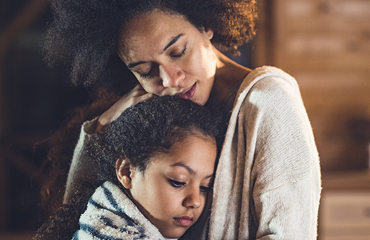
A death has occurred and quite obviously the friends and family of the deceased are mourning and grieving in the expected ways – through expressions of tears, withdrawal, sadness, loneliness, etc., but what about the children? Do children feel the effects of loss in the same way as adults? First we must understand that a child’s grief looks much different than an adult’s. The biggest misunderstanding our society has about children who have experienced the death of a loved one is that they are not affected by the death. Dr. Alan Wolfelt, clinical psychologist who specializes in grief and loss, says it best, “if you are old enough to love, you are old enough to grieve.” A child’s grief does indeed look very different from an adult’s. Nonetheless, it is grief, and it most certainly has an impact on them. Most often the processing of their grief is done through play. Play is a child’s work. Play helps a child make sense of the world they live in.
What looks like “just play” is indeed grief work for a child. Children know instinctively how to dose themselves with grief; therefore, giving themselves much needed breaks from the work of grieving. Never assume that because you see a child running and playing just hours after the news of a loved one’s death that they aren’t grieving. Instead, it is a natural and healthy way for them to process the very difficult news that is quite overwhelming for them.
So how can you best support a grieving child? Here are some helpful ways to encourage healthy grieving in a child:
Speak the truth. Do not hide details about the death, instead communicate to them on their level of understanding.
Encourage sharing by including your child in discussions about what to expect at the funeral or memorial service as well as sharing memories and stories about the person who died.
Encourage expression through play, games, art, or music. Often a child will act out feelings and details of the death through various forms of play.
Safety – provide a safe place for them to be a kid and let them know you are there to listen when they need to talk, but don’t expect them to. Most kids will not talk about the death and the feelings they have about it, but will instead communicate it through their behavior.
Love – most of all a grieving child will need extra love and attention. Expect that they will communicate their grief through various behaviors (crying more, bed wetting, more clingy, decline in academic behavior, newfound fears, etc.). Keep their routine as familiar as possible to help them feel safe, supported, and loved.
Grieving children who are understood and supported will learn healthy coping skills for healing.